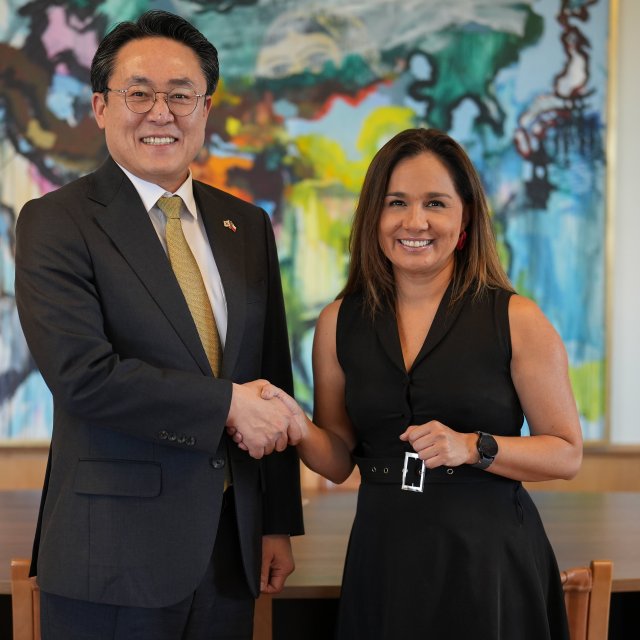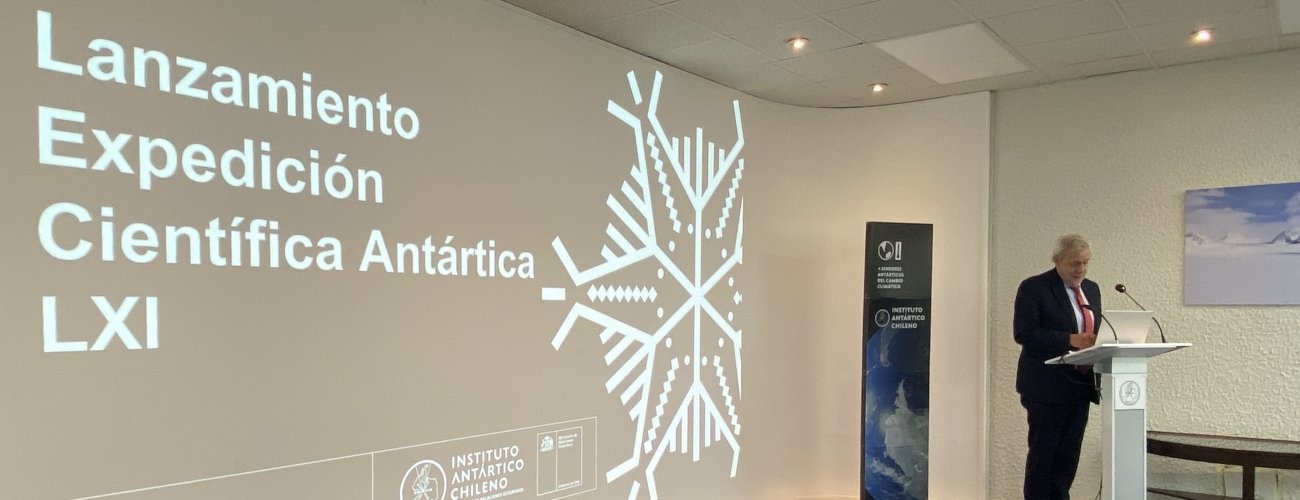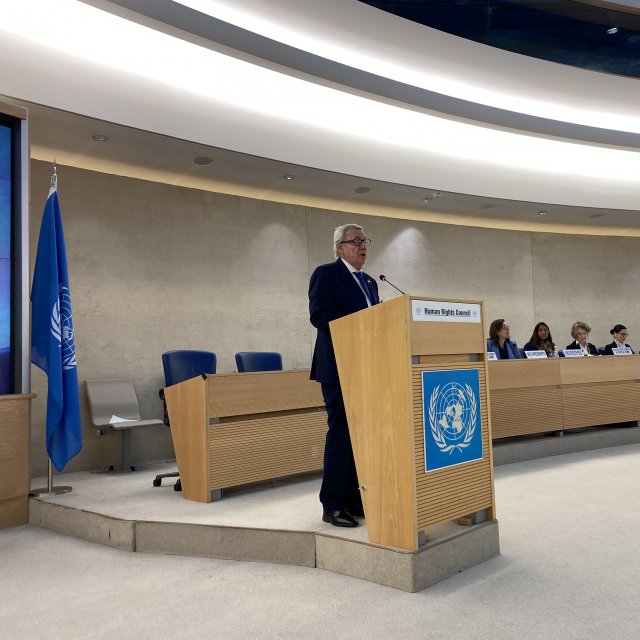 Thursday, February 27th 2025
Undersecretary meets with the Minister of Oceans and Fisheries of the Republic of Korea
Thursday, February 27th 2025
Undersecretary meets with the Minister of Oceans and Fisheries of the Republic of Korea
Minister Alberto van Klaveren makes an work visit to Punta Arenas and highlights the importance of the region for Chile's international promotion

The Minister of Foreign Affairs, Alberto van Klaveren, made a work visit to Punta Arenas, where he led a regional cabinet meeting, in addition to visiting the ASMAR shipyard and a green hydrogen plant. He also participated in the launch of the 61st Antarctic Scientific Expedition.
Early in the morning, the Secretary of State met with the Regional Presidential Delegate of Magallanes, José Antonio Ruiz, to discuss the priorities of the region, as well as Antarctic matters and the importance of strengthening Chile's role as the gateway to the white continent; they also discussed the commemoration of the 40th anniversary of the signing of the Treaty of Peace and Friendship between Chile and Argentina, as well as the green hydrogen projects being developed in Magallanes.
Afterwards, he led the regional cabinet, where he presented the national budget for the year 2025, which will grow by 2.7% with respect to the current year.
Regarding the Magallanes Region, the Minister highlighted the opening of a new library and regional archive and the beginning of the construction of a new port in Fildes Bay in Antarctica. He also stated that the goal is to promote the urban development of the city of Punta Arenas through the establishment of a network of parks and the development of housing projects in historically neglected areas that include green areas, connectivity and access to services. He also recalled that work is being done to install the Magallanes region as a leader in the Green Hydrogen industry, nationally and internationally, with the support of instruments such as the Green Hydrogen Action Plan 2023-2030 and the so-called Magallanes Pact.
Later, he visited the ASMAR shipyard, the world's southernmost shipyard, to see its facilities, as well as the ATF-60 “Lientur”, a Navy ship equipped to navigate in Antarctic waters. Additionally, he learned about the port infrastructure construction project in Fildes Bay, in Chilean Antarctica, which will include docks and sheds to facilitate the embarkation and disembarkation of people and cargo, with the purpose of improving supplies for Antarctic operators.
“We have had a very interesting program, which reflects the potential of Magallanes. This region is very important from the point of view of Chile's geopolitical projection, but apart from that, today it is also experiencing a very significant development of a cutting-edge industry such as green hydrogen,” said Minister van Klaveren.
Later, the minister visited the HIF Haru Oni demonstration plant, which produces carbon-neutral e-fuels thanks to the strong winds of Patagonia. This visit is part of the importance for the government of President Gabriel Boric Font to advance towards the goal of being a carbon neutral and resilient country by 2050.
Launch of Antarctic Scientific Expedition
In the afternoon, at the facilities of the Chilean Antarctic Institute (Inach), Foreign Affairs Minister Alberto van Klaveren participated in the launching of the 61st Antarctic Scientific Expedition (ECA), which will take place between November and March, and which will mobilize nearly 400 people, including scientists and support and logistical personnel.
The main emphasis this season will be on continuing the monitoring of the bird flu virus in the Antarctic Peninsula by a specialized group of researchers. In addition, the development of strategic projects for the country will continue, such as the Marine Protected Areas and the Antarctic Climate Change Observatory Sensor Network.
“This new scientific expedition reflects very well the work that Inach does. Inach has not only maintained its mission, but has managed to strengthen it, especially through its scientific activity, project development, international scientific publications and also the participation of researchers in projects closely related to Antarctic activity”, commented the Minister. “It has been a very fundamental pillar in the Antarctic projection of our country and has been practically since the first scientific expedition, which took place in 1964-1965. And one of the axes of our national Antarctic policy is to consolidate Chile's participation in the forums of the Antarctic Treaty System”, he concluded.
Related articles
 Thursday, February 27th 2025
Undersecretary meets with the Minister of Oceans and Fisheries of the Republic of Korea
Thursday, February 27th 2025
Undersecretary meets with the Minister of Oceans and Fisheries of the Republic of Korea
 Monday, February 24th 2025
Minister van Klaveren reaffirms Chile's commitment to human rights and gender equality
Monday, February 24th 2025
Minister van Klaveren reaffirms Chile's commitment to human rights and gender equality









